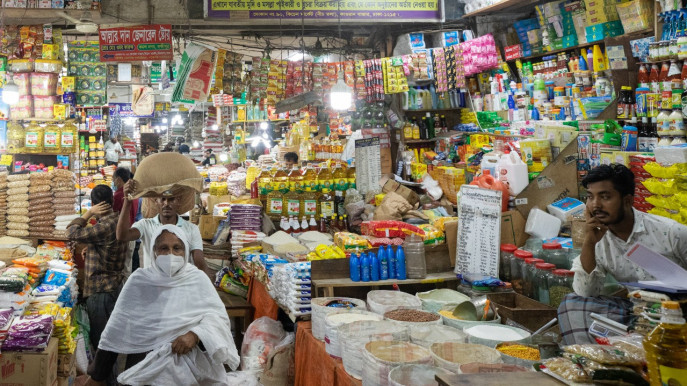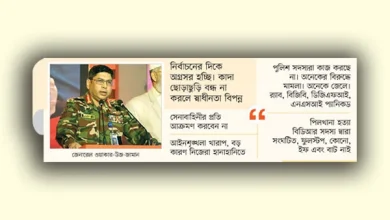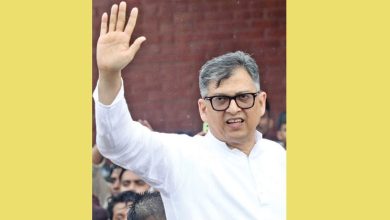Pain deepens as food inflation stays above 12%

Food inflation in Bangladesh stayed above 12 percent for the second consecutive month in September as prices showed no signs of cooling down, hitting the pockets of the consumers who spend most of their incomes to feed their families.
According to the data released yesterday by the Bangladesh Bureau of Statistics (BBS), food inflation stood at 12.37 percent last month, slightly down from August’s 12.54 percent but nearly three percentage points higher from the rate seen in the identical month a year prior.
Non-food inflation also fell, to 7.82 percent, which was 7.95 percent in August.
As a result, the Consumer Price Index (CPI), which measures the monthly change in prices paid by consumers, rose 9.63 percent in September, down 29 basis points from more than a 12-year high recorded a month earlier.
A recent surge in inflation eroded consumer purchasing power, contributing to a deceleration in estimated private consumption from 7.5 percent to 3.5 percent, according to the World Bank.
“It has really become unbearable. The prices of everything are very high,” said Meer Rasel, a university graduate, who is looking for public sector jobs.
“The frequency of popular fish and meat coming to our plates has reduced as we have to manage within our means.”
The 26-year-old shares a two-bedroom flat in the capital with eight others and bears most of his expenses from his income through tutoring. He has been forced to stop purchasing fruits as prices have gone through the roof.
In Bangladesh, inflation has accelerated in the past one year and a half years owing to a mixture of external and internal factors.
External factors include supply chain disruptions following Russia’s invasion of Ukraine and higher international commodity prices, while domestic factors include a 28 percent depreciation of the taka against the US dollar since February last year, and persistent foreign currency shortages, driven by a 30 percent drop in the reserve, leading to import restrictions.
In a report yesterday, the World Bank said a 179 percent hike in the administered gas for the industrial sector, coupled with an increase in administered electricity prices led to higher prices for manufactured products.
Higher administered diesel prices affected irrigation and the prices of agricultural products. A more than 40 percent spike in the administered prices of petroleum products in the domestic market impacted transportation costs, which, in turn, affected retail prices.
Mustafizur Rahman, a distinguished fellow at the Centre for Policy Dialogue, said the over 12 percent food inflation came on top of the 9.08 percent food inflation seen in September 2022.
He explained if someone spent Tk 100 for a product in September of 2021, the price came at Tk 109 in the same month of 2022 and nearly Tk 122 this September.
The spike is almost double the official rate of food inflation.
“People are under tremendous pressure to meet the food expenditures in both rural and urban areas,” said Selim Raihan, a professor of economics at the University of Dhaka.
“Not only the poor but also the middle-income groups with fixed incomes are reeling under the price pressure as they have to spend the lion’s share of their income to afford it.”
“It’s unprecedented that food inflation has stayed at an elevated level for a long time.”
The central bank has adopted a contractionary monetary policy stance and raised the policy rate half a dozen times since the war broke out to bring down inflation. However, monetary policy transmission was impaired by caps on lending interest rates, the World Bank said.
On September 14, the government fixed prices of three food items, namely eggs, onions and potatoes. It has capped the price of sugar and liquified petroleum gas as well.
“The price cap is not working. A chaotic situation exists in the market,” said Prof Raihan, adding that the monetary policy is not working right now.
“It is clear that the government’s initiatives have been of no use.”
He said the government could have reduced import duties on food items to cool down the market. “But there is no such initiative.”
Prof Mustafizur said owing to the higher inflation, the purchasing power of common people is continuously eroding and making a living has become tougher for them.
“There is poor market management, monitoring, and a lack of proper information-based policy when it comes to fighting higher inflation. There is a big implementation failure here on the part of the government.”
Ghulam Rahman, president of the Consumers Association of Bangladesh, said the latest inflation data pointed out that there is no respite from persisting price pressures.
“The spiralling inflation has had negative impacts on the lives of people. And there is no sign that prices will fall soon.”
Prof Raihan warns that inflation may jump further due to a lack of priorities from the government in the coming months as political issues will receive utmost importance in the coming quarter instead of economic matters owing to the impending election.
Both he and Prof Mustafizur urged the government to give priority to reining in inflation using institutions like the BB, the National Board of Revenue, the Directorate of National Consumer Rights Protection, the Bangladesh Competition Commission and the commerce ministry and sell more items among the poor and the low-income groups through the Trading Corporation of Bangladesh at subsidised rates.
The World Bank also said absent policy tightening, inflation is likely to remain elevated in the near term and gradually subside if import prices stabilise in the medium term.
“In the near term, monetary and exchange rate policy changes are needed to reverse the decline of reserves and contain inflationary pressure.”







